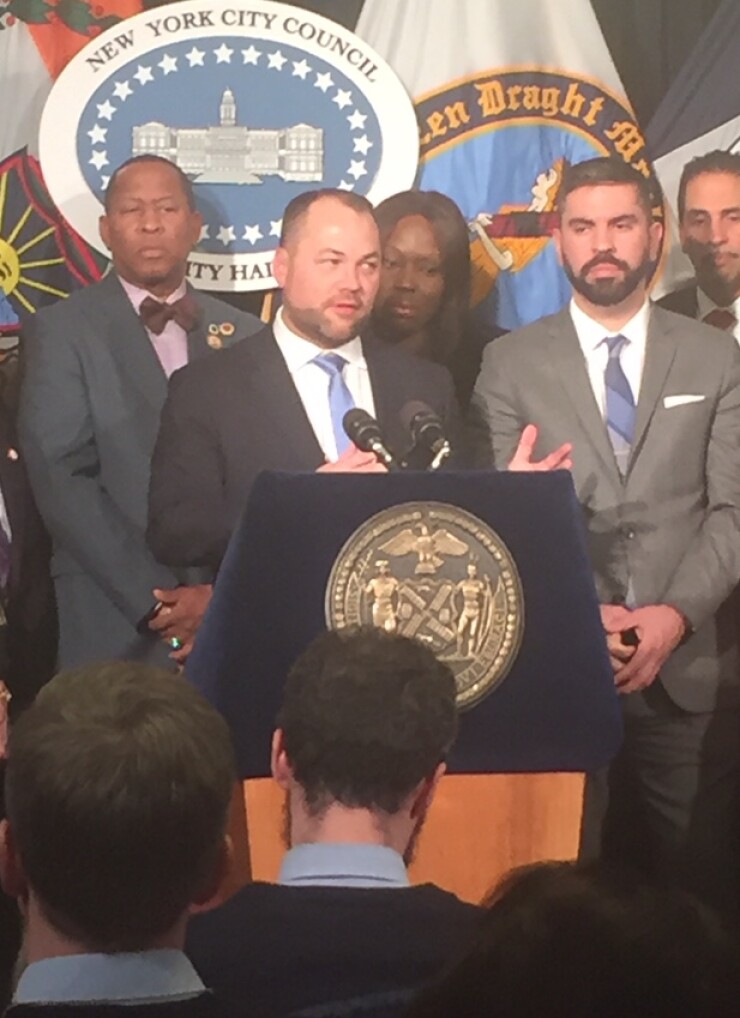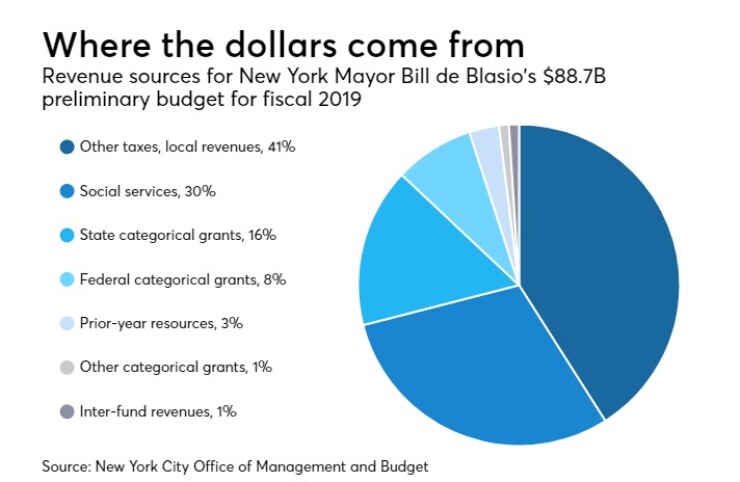New York Mayor Bill de Blasio’s $88.7 billion preliminary budget proposal faces stiffer headwinds with Corey Johnson as the new City Council speaker.
The combative tone was evident when Johnson and his colleagues grilled New York City Housing Authority chief executive Shola Olatoye about problems ranging from lack of heat at up to 80% of NYCHA units to a Department of Investigations report that accused the embattled agency of fudging lead-paint statistics.
“This council will start conducting oversight in a very different way,” Johnson said during a Feb. 6 joint hearing of the committees on oversight and investigations, and public housing.

“When I see a problem, particularly a complicated one, we will devote the necessary resources to truly understand. That means more staff and more time, and even means issuing subpoenas if we must.”
NYCHA has a capital needs backlog of nearly $17 billion, and federal funding is an open question. Still, said Johnson, the agency gets no free pass.
“I understand NYCHA is facing cuts from the federal government, but the scope of this failure is mind-boggling, even in this context,” he said.
After his swearing in, Johnson immediately created a subcommittee on capital budgets. De Blasio’s modified capital commitment plan for fiscal 2018-22 authorizes agencies to commit $79.6 billion, of which $71.9 billion will be city-funded.
“We have to make sure we’re spending money wisely and effectively,” he said. The new panel, he said, would commit to infrastructure needs, promote transparency and monitor project delivery.
De Blasio last week released his $88.7 billion preliminary budget, kicking off the process for the fiscal 2019 spending plan. He was scheduled to deliver his State of the City address Tuesday night at the King’s Theatre in Brooklyn.
Johnson’s leadership veers sharply from that of predecessor Melissa Mark-Viverito, a de Blasio loyalist whom the mayor hand-picked for the position. Term limits prevented Mark-Viverito from running again.
The last two budgets sailed through the council with little debate, and de Blasio signed both a month early.
While fiercely liberal like de Blasio and Mark-Viverito, Johnson, 35, has promised fiscal tenacity.

He drove that point home during a keynote breakfast speech before the business group Association for a Better New York, even invoking how political and business leaders collaborated to lift the city out of its mid-1970s fiscal crisis.
“Progressivism and business are not always a natural fit, but that’s New York,” Johnson said at the Marriott Marquis hotel in Times Square.
Johnson, who is openly gay, moved to New York from Boston’s North Shore right after high school. He chaired Manhattan's Community Board 4 before his election to the council. His district along Manhattan's West Side stretches from Greenwich Village to Columbus Circle.
“Corey is a story of personal grit and civic leadership,” said ABNY president Steven Rubenstein, president of the namesake communications agency founded by his father, Howard. “Corey’s track record is strong.”
Johnson, unlike de Blasio, is receptive to more funding for the Metropolitan Transportation Authority, the state-run agency that operates the city’s subways and buses. He added, though that strict oversight should accompany any increase.
His doggedness emerged two years ago when, as chairman of the council’s health committee, he
Raju said the plan would involve no hospital closures, service privatizations or significant layoffs.
Johnson replied: "If none of those three things are on the table and we are relying on federal and state action to benefit the corporation … I mean, where do we go buy the Powerball ticket?”
After a round of council hearings, the mayor will adjust and release an executive budget in April that the 51-member council must approve by June 30.





